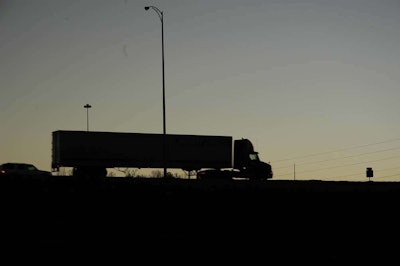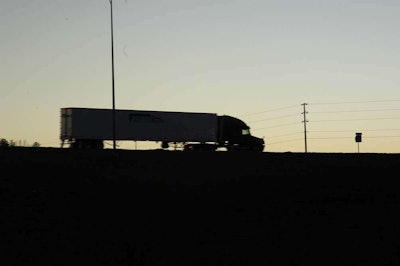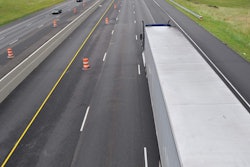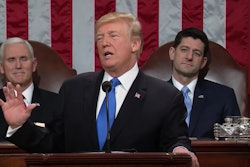
 Trump’s plan calls for $1.5 trillion in infrastructure investment, but only $200 billion of that would come from the federal government, breaking with the U.S.’ traditional mechanism for funding roadways.
Trump’s plan calls for $1.5 trillion in infrastructure investment, but only $200 billion of that would come from the federal government, breaking with the U.S.’ traditional mechanism for funding roadways.President Trump on Monday unveiled his administration’s long-teased plan to revamp U.S. infrastructure funding, calling for leaning more heavily on funding from the private sector and from states and localities, rather than federal spending. While the administration touts a total price tag of $1.5 trillion in infrastructure funding, Trump’s plan calls for only $200 billion in federal funding, which the White House says will “spur at least $1.5 trillion in infrastructure investments” from states, cities and private investors.
Notably, the infrastructure package would repeal the current ban on Interstate tolling, allow for the commercialization of rest areas and alter the types of projects supported by federal funds. The Trump Administration’s proposed plan also calls for streamlining permitting processes for infrastructure projects, which the Trump White House has adamantly said impedes work on major highway projects. Trump’s proposal also seeks to enact financing incentives to lure private and state investments into highway projects.
It’s unclear whether lawmakers intend to take up Trump’s proposal, which he touted at the State of the Union in late January.
Following a leaked preview of the plan last month, the American Trucking Associations, among other anti-toll groups, said the White House plan misses the mark on the need for highway funding certainty. ATA, which took issue with Trump’s plans to ramp up Interstate tolling, instead called for raising per-gallon taxes on gasoline and diesel to generate needed revenue for the U.S. Highway Trust Fund.
“So-called ‘creative financing’ tools are a road to nowhere, as study after study shows the shortfalls of tolling and the unintended consequences that tolls impose on motorists and surrounding communities,” said Chris Spear, ATA President and CEO, last month. “There is nothing ‘conservative’ about tolling.”
Likewise, the Owner-Operator Independent Drivers Association late last month pressed for a fuel tax increase as the proper way to rebuild the country’s “deteriorating” roadways. ““The heart of it is a fuel tax with revenues collected going to roads and bridges. It’s simple, efficient and it serves the very real needs of our country and its people,” said Todd Spencer, acting president of OOIDA. “If elected officials think a fuel tax increase would be unpopular, wait until Americans encounter more and higher tolling.”










